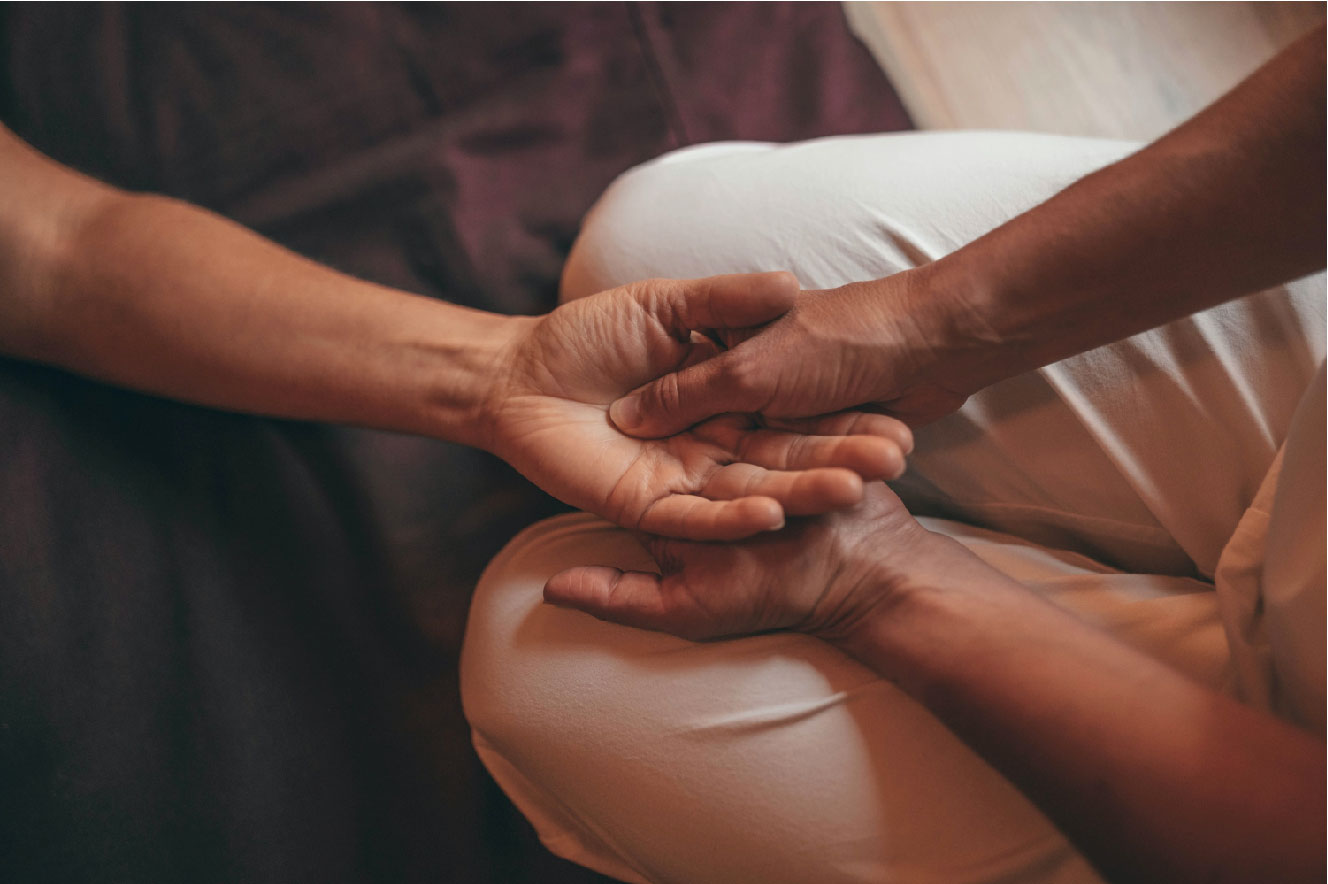Acupuncture for stress and anxiety can be a great holistic alternative or complementary treatment to western medicine. The stimulation of acupuncture points for anxiety and stress are known to have a number of benefits on mental health conditions, which when used in conjunction with western treatments, can make conditions more manageable.
Our guide to acupuncture for anxiety and stress will take you through the basics of how it works, acupuncture benefits in relation to stress and anxiety, appropriate acupuncture points for anxiety and stress, and will also discuss acupuncture in comparison to western treatments.
How Acupuncture Works
Research has shown that acupuncture benefits mental health issues such as anxiety and stress by regulating the chemicals in the brain, and stimulating the nervous system to promote mental and physical wellbeing. The stimulation of certain meridians has shown to affect areas of the brain known to reduce stress and promote relaxation.
From an East Asian perspective, emotions are linked to major organs. This is called Shen, loosely translated as spirit. Acupuncture for stress and anxiety focuses on the digestive system and the heart to help balance out irregularities in Qi.
How Does Acupuncture Help Mental Health?
The stimulation of certain acupuncture points for anxiety and stress are thought to have a number of benefits on mental health. Stimulation of these points in the nervous system causes various neurochemicals and endorphins to be released, potentially promoting mental and physical wellbeing.
Benefits of Acupuncture for Stress and Anxiety?
There are a number of purported mental health benefits to gain in using acupuncture for stress and anxiety, these include:
Stimulation of the Nervous System
Stimulation of the nervous system at particular points causes the release of various neurochemicals and endorphins that have a positive effect on mental health and overall physical wellbeing.
Acupuncture Improves Symptoms of Anxiety
A study from 2015 reported that acupuncture improved the symptoms of anxiety in people that did not respond to other western treatments such as psychotherapy and medication. After 10 weeks of treatment, patients reported a significant reduction in their anxiety. However, further high quality studies are needed to explore whether this is observed in larger populations, consistently.
Reduces Stress Levels
Stimulation of certain meridians have shown to affect the area of the brain that is responsible for pain and stress.
Promotion of Relaxation
The stimulation of the area of the brain that is responsible for pain and stress is also known to promote relaxation.
Reduces tension
When stimulating the correct acupuncture points for anxiety and stress, acupuncture can reduce serotonin levels in the brain, and increase endorphins. This helps to reduce tension, stress and anxiety.
Reduces the Reliance on Western Medication
Many people suffering with mental health conditions such as stress, anxiety and depression often turn to acupuncture to reduce their reliance on western medication. Acupuncture can be built into treatment plans in order to reduce reliance on medication, however a GP should always be consulted.
What are the Meridian Points for Stress and Anxiety?
Often, the Heart meridian (specifically Ht7), auricular (NADA protocol) or four gates (LI 4 and LR3, bilaterally) are needed to treat stress & anxiety.
Are There Any Risks Associated with Acupuncture for Stress and Anxiety?
Acupuncture risks and complications are rare, however patients should always speak with their healthcare provider before treatment if they are in an at-risk group such as pregnancy, long term health conditions or those with blood disorders.
The main risk for healthy patients is soreness and bruising following a session. On rare occasions, some patients may also feel faint or dizzy after acupuncture, however this can be prevented by eating prior to treatment and not standing too quickly afterwards.
How Does Acupuncture for Stress and Anxiety Compare to Western Medical Treatments?
Western medicine should never be completely switched out for acupuncture without a patient first speaking to their GP. However, long term use of medications can bring about other issues and dependencies.
Western medication relies on sedative, anti-depressant, and mood regulating medication to treat mental health conditions such as stress and anxiety. These drugs have possible side effects including headaches, insomnia, and depression, amongst others.
East Asian acupuncture links emotions such as stress and anxiety to the major organs in the body, addressing any imbalances by placing needles at specific points in the body related to the emotion in question. There are few risks and side effects associated with acupuncture for stress and anxiety, especially in comparison to what are considered normal and acceptable side effects in western medicine.
For best effect, it is recommended that acupuncture is used alongside western medicine as a complementary treatment, as it is relatively low-risk and is unlikely to harm other treatments, yet promotes positive mental health and overall wellbeing with regular treatment.
However, further high-quality research is needed before we can be confident that acupuncture has a statistically and clinically significant effect.
What Else Can Acupuncture Be Used For?
Acupuncture is used for a wide range of both physical and mental health problems to some success. These include:
- Joint pain
- Dental pain
- Menopausal symptoms
- Chronic pains
- Menstrual cramps
- Chemotherapy induced nausea
- Post-operative pain and nausea
Acupuncture Courses for Medical Professionals
Breeze Academy offers a variety of acupuncture and dry needling courses for healthcare professionals. Learn more about acupuncture for mental health conditions such as stress and anxiety and level up your practice. View our acupuncture and dry needling courses here).
